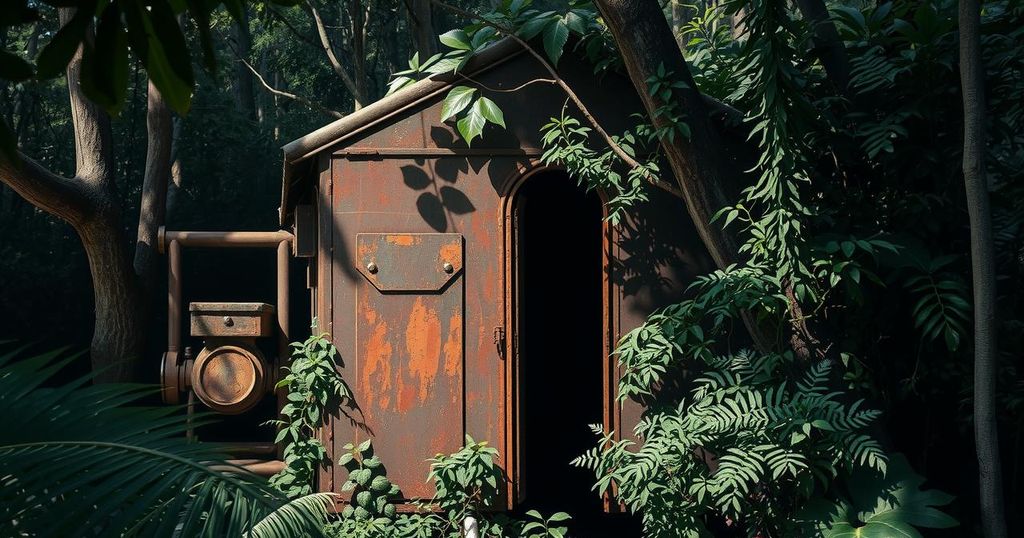Major General Peter Cirimwami, military governor of North Kivu, died from injuries during combat against M23 rebels. The growing conflict has displaced over 400,000 people this year, leading to heightened fears in Goma. The situation is exacerbated by accusations of foreign support for the rebel group and widespread humanitarian crises in the eastern DRC.
On the front lines in the Democratic Republic of the Congo (DRC), Major General Peter Cirimwami, the military governor of North Kivu province, succumbed to injuries sustained during combat. Local authorities reported that he died as M23 rebel fighters encroached upon Goma, the provincial capital. The details surrounding his death remain ambiguous, but he had visited troops at Kasengezi, roughly 8 miles from Goma, on the day he died.
Cirimwami’s death was confirmed by government, military, and United Nations sources who chose to remain anonymous. As M23 rebels continue to consolidate their control, the situation in North Kivu has deteriorated, creating widespread panic within Goma, a city that is critical for regional security and humanitarian operations. M23 has achieved significant territorial victories in the weeks preceding Cirimwami’s death, posing an imminent threat to Goma, home to approximately two million inhabitants.
The United Nations characterized the ongoing conflict in North Kivu as increasingly grave, reporting over 400,000 people displaced this year alone, which is nearly double the number reported merely a week prior. Matthew Saltmarsh, a spokesperson for the Office of the UN High Commissioner for Refugees, expressed serious concern for the safety of civilians, particularly internally displaced persons in eastern DRC, as heavy bombardments force families from various sites to flee for safety into Goma.
In response to the escalating violence, the United States, the United Kingdom, and France recommended that their nationals evacuate Goma while borders and airports remain functional. The M23 group has been accused of committing horrific acts, including mass displacements and sexual violence; over two million individuals have been rendered homeless since the conflict reignited three years ago.
Those fleeing the violence share stories of fear, such as Mumulirwa Baguma Destin, who stated, “We fled as a precaution because we know that when the enemy arrives in our village, they will forcibly recruit many young people.” M23 is among the approximately 100 armed factions grappling for power in the resource-rich eastern DRC, perpetuating one of the world’s most extensive humanitarian crises.
This month, M23 has taken control of several strategic towns, rekindling fears reminiscent of their invasion in 2012 when they seized Goma for over a week. Both the DRC government and UN experts have alleged that Rwanda supports M23, which primarily consists of ethnic Tutsis divorced from the Congolese army over a decade ago. Rwanda has refuted these claims, although it has acknowledged maintaining forces and missile systems in eastern DRC to secure its borders.
Al Jazeera’s Malcolm Webb reported that many refugees had previously endured M23’s 2012 offensive, instilling deep-seated fears of the group’s reestablishment. Refugee camps housing those displaced from conflict are notorious for unsanitary conditions and prevalent sexual violence, raising further safety concerns for vulnerable populations suffering from ongoing strife.
The Democratic Republic of the Congo has been embroiled in conflict for decades, particularly in the eastern region of North Kivu. The region is home to numerous armed groups fighting for control over rich mineral resources. M23, one of these groups, emerged several years ago and has been accused of severe human rights violations, leading to widespread humanitarian crises, including mass displacements and local populations being subjected to violence and intimidation.
The death of Major General Peter Cirimwami amid escalating hostilities underscores the precarious situation in North Kivu, where M23 rebels threaten Goma’s stability. With over 400,000 displaced individuals this year and humanitarian conditions worsening, the ongoing conflict continues to draw international concern. The international community is urged to act to secure the safety of civilians and prevent further escalation.
Original Source: www.aljazeera.com






